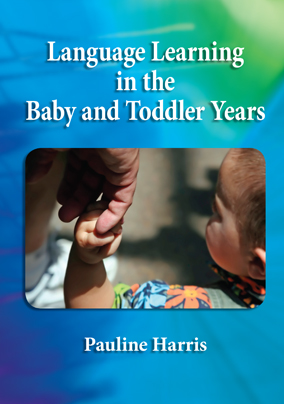The Book
This is a text designed for teacher education and professional development. It focuses on early language and literacy development in infancy and toddlerhood. It explores how caregivers support babies' and toddlers' interactions in early childhood settings. The book emphasises the importance of recognising the everyday events that engage and foster babies and toddlers' interactions. The book explores a number of theoretical frameworks and uses a functional systematic linguistic perspective to provide readers with practical frameworks to guide appropriate and relevant approaches to developing interactions during routines as well as planned and unplanned experiences; and mapping growth and milestones in this aspect of babies' and toddlers' development. The relevance of partnerships with children's families is highlighted, along with strategies for developing such partnerships to help early childhood educators foster young children's interactions.
The Author
Dr Pauline Harris is Associate Professor of Language and Literacy and Early Childhood Education in the Faculty of Education at the University of Wollongong. She was the Founding Director of Early Childhood Education at the University of Wollongong from 1992 to 2002. Currently, she is the Founding Co-ordinator of the Literacies Research Initiative and leads an Australian Research Council Discovery study called the ‘Literacy Nexus’ Project, which explores links between literacy research, policy and practice. Pauline is also involved in a multidisciplinary Early Childhood research initiative that focuses on giving young children the best possible start to their lives. Pauline’s work has been dedicated to promoting effective language and literacy pedagogies and practices in the early years that build pathways of continuity across children’s home, community and school settings. She is a strong advocate of the role of play in the lives of young children as well as an approach to adult learning and the professional development of early childhood educators. Pauline’s award-winning research has had strong funding support from the Australian Research Council.
  
Each chapter contains features that make this book ideal for teacher education and professional development:
- Chapter overview.
- Reflective tasks that engage readers in considering key points in the chapter, in light of their own experiences and understandings as early childhood teachers/preservice teachers.
- Workshop activities designed to invite participants in making links between theory and practice – applying the book's content to developing, modifying and affirming their practices in early childhood settings.
- Glossary of key terms
- Further readings to encourage readers to follow through further on topics of interest.
Contents
Approaches to Explaining Children’s Language Development
Early Spoken Language Development
Growth Towards Written Language
Early Encounters with Written and Visual Texts
Language Learning In Diverse Settings
Documenting Babies’ and Toddlers’ Language
Assisting Children’s Language Interactions
Children’s Literature for Babies and Toddlers
Play and Language Development
Glossary
References
Children’s Book References
Index |
